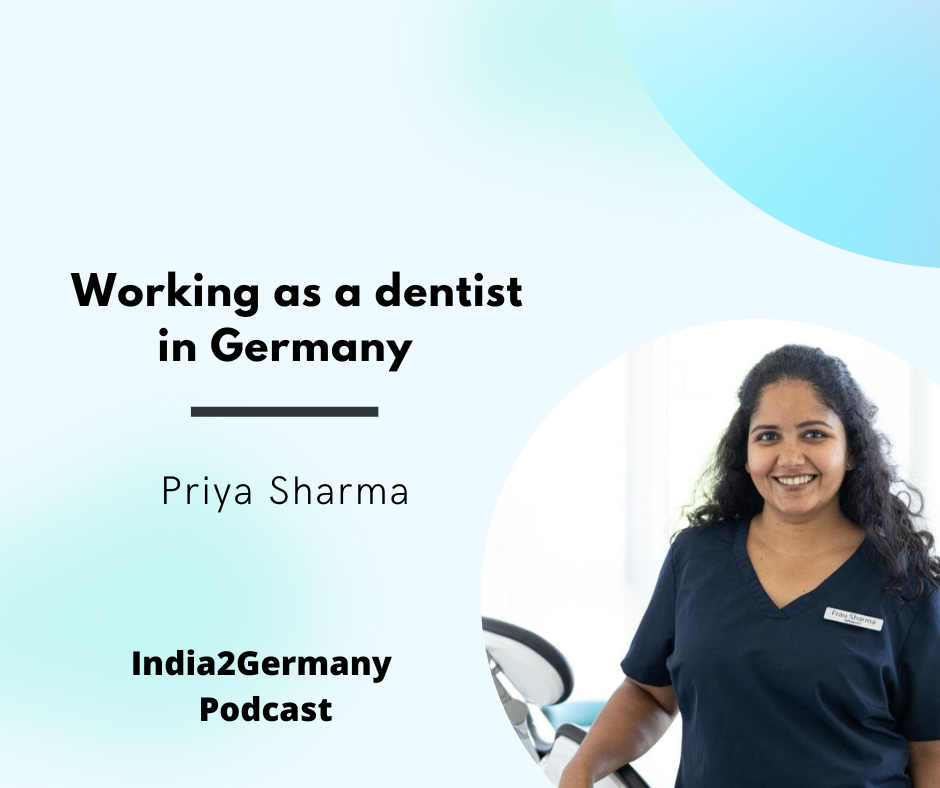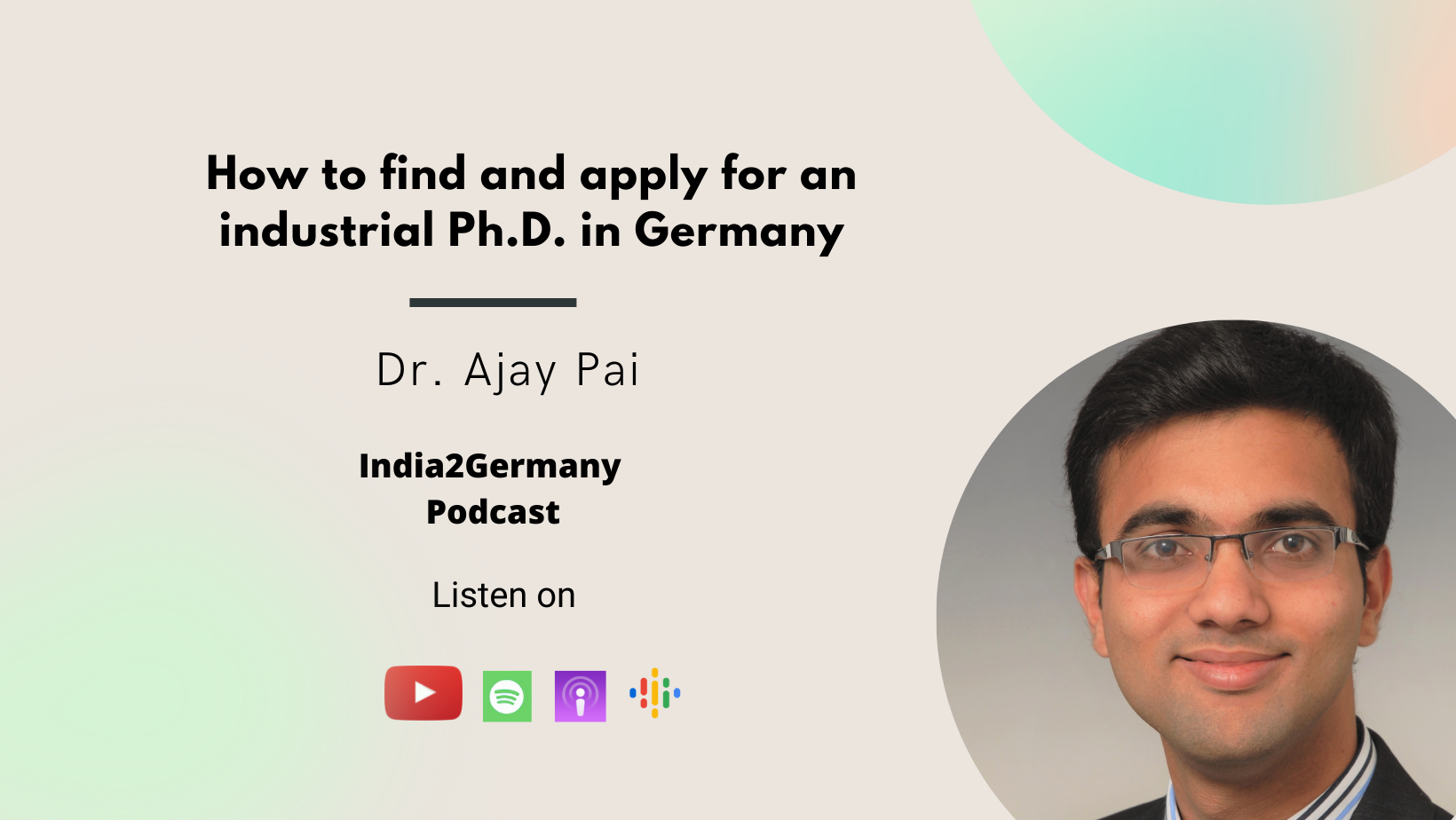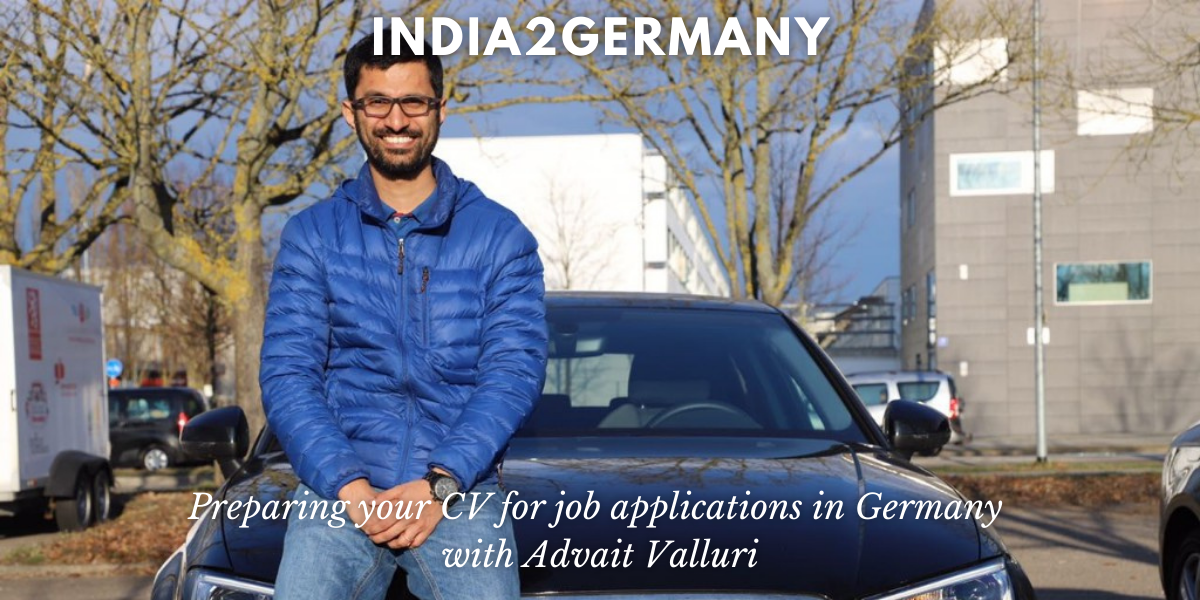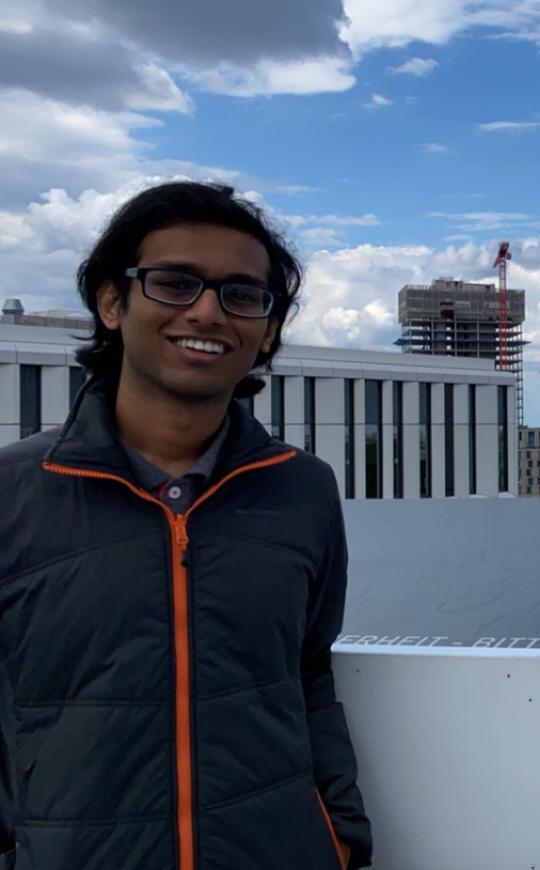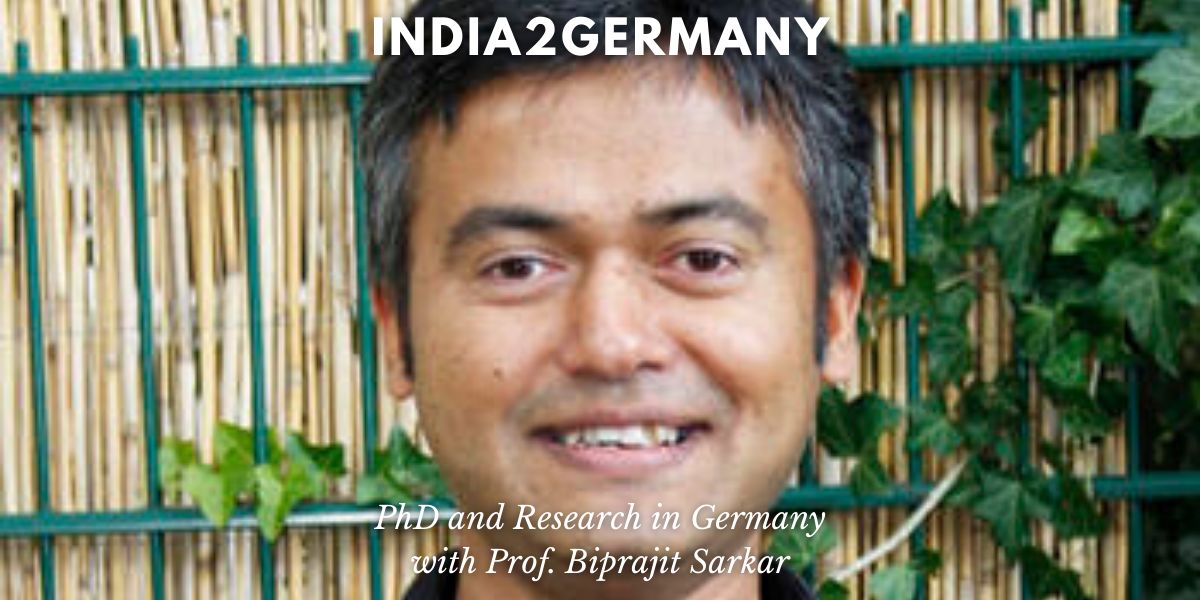
Doing PhD and Research in Germany with Prof. Biprajit Sarkar
Prof. Biprajit Sarkar is Professor and Director at the Institute of Inorganic Chemistry at the University of Stuttgart, Germany. He spoke with us about several important questions related to doing PhD and research in Germany.
Prof. Biprajit Sarkar is University Professor and Director at the Institute of Inorganic Chemistry at the University of Stuttgart, Germany. He spoke with us about several important topics relating to PhD and research in Germany, such as what doing PhD and research in Germany is like, how it compares with other countries, career options for researchers in Germany, choosing the right university and research group, preparing and applying for PhD and research positions, and things that professors look for while hiring PhD candidates and researchers.
Hit Play to listen to this conversation and Follow to get notified about upcoming episodes.
This article is about PhD at a university in Germany. If you are interested in PhD in the industry in Germany, check out our article in the link below.
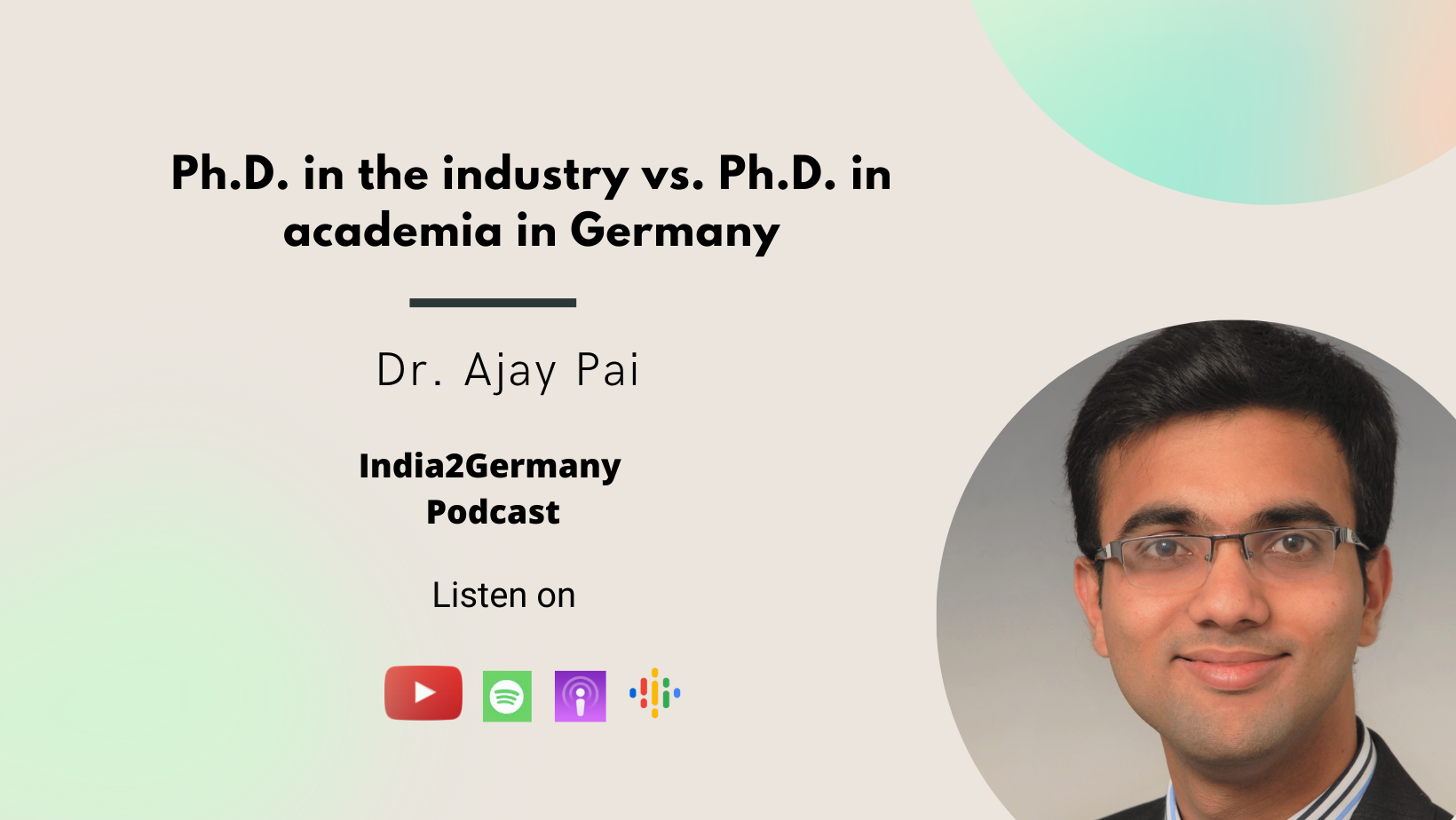
Hi Biprajit, thank you for speaking with us. Could you tell us a little bit about yourself?
I of course, come from India, as should be obvious from my name 😃. I grew up in a small town called Barpeta Road in Assam, about 100 kilometers from Guwahati. I did my schooling there until the 10th grade. Then I spent 2 years in Guwahati for my 11th and 12th. Then I went to Delhi University to do my Bachelors of Science in chemistry, and then to IIT Bombay for my Masters of Science, also in chemistry. After that I moved to Germany.
Going to the US was out of question for me because I just didn't have the money to write all those expensive exams and and also pay a fee to apply to every university.
Why did you choose Germany over other countries, e.g. the US and the UK?
I applied only to Germany. There are several reasons for this. Firstly because it's a country that is very well known for its research. Secondly, going to the US was out of question for me because I just didn't have the money to write all those expensive exams and and also pay a fee to apply to every university. In the UK, at least at the time when I applied in 2001, there were not that many opportunities to do a PhD. My professor in India with whom I did my master's project brought Germany to my attention. So I applied and things worked out and then I came here. I applied to only two universities - one was the University of Stuttgart, where I am a professor now and the other was Free University of Berlin, where in fact I also was a professor for several years. I ended up taking the taking the offer for doing a PhD at Stuttgart because it matched better with the kind of things that I wanted to do.
How did you become a professor?
I basically followed a very classical path as far as the German academic system is concerned. I came here to do a PhD, which I finished and then I went for a postdoc to France. My original plan was doing a postdoc and then going back to India, but then during the time that I was in France, an opportunity to do so called Habilitation came up at the University of Stuttgart which I decided to take up.
Habilitation is what you have to typically do in Germany if you want to start an independent career in academics. It is actually comparable to an Assistant Professor position in India with the difference that in a habilitation you cannot get a tenure position at the same university where you do the habilitation. During the habilitation you need to generate your own ideas, start a research group, get third-party funding, write proposals, publish independent papers and so on.
When I finished my habilitation, I had two job offers for a professor's position - one was in Dresden and the other was in Berlin. I took up the offer at the Free University in Berlin in the beginning of 2012 and moved to Berlin. I stayed there for seven and a half years. At the end of 2019, I moved back to Stuttgart, actually to the position that was formerly of my PhD supervisor who retired. I interviewed for the position and got selected. So I came back to where I started 😃.
How much time did it take from doing the PhD until getting professorship?
For the PhD it took me about three and a half years. Then I spent six months in Stuttgart at that time. My postdoc was fairly short, this was just one year. The habilitation was for five years.
Which career options does one have as a researcher in Germany?
These days there are several other options other than the classic one that I took. What you can do after a PhD is also dependent on the field of studies of course. In chemistry in Germany, it is very common that you do a PhD and academics is only one option after completing the PhD. In fact, since the chemical industry in Germany is very strong, perhaps even one of the strongest in the world, most people who do a PhD in chemistry in Germany do not go into academics. I would say something like 10% perhaps go into academics or maybe even less. There are many people with a PhD in chemistry who go to the chemical industry. These jobs can be of many different types. You can be working in real chemical production, but you can also be working for automobile company where you're trying to make catalysts for car exhausts or doing research on batteries for electric cars. There are also lot of jobs in quality control of various types, because for most kinds of quality control, you need some kind of knowledge of chemistry, e.g. for food and drinks and for hard material quality control. There are lots of jobs in the analytical field, e.g., in forensic departments. Moreover, there are also quite a few jobs in the fields of safety and security related to chemicals because this is a huge issue everywhere. Finally, there are also people who go on to become editors of journals or do scientific writing. These are all full-time career opportunities where you get a good salary.
If you want to stay on in academics, after a PhD, you would typically do a postdoc, we already discussed this. Then you you have the chance to either do a habilitation like I did and find a tenure track position after that. There are so called Junior Professor positions that come with a tenure track. Unlike Habilitation, there you have the chance to stay on at the same university if you are evaluated positively. Other than this, you can become a group leader after Postdoc. Group leader positions are usually either associated to some big projects that are run at universities or other research institutes, or you come with your own stipend. There are federal funding agencies that fund people at the start of their careers. In my opinion, the Junior Professor positions are the best options because then you already have quite a bit of job security even when you start with such a position. Finally, there are other positions that are without tenure, but if you do well, I think chances are not bad that you get a permanent position after that.
How high are the chances to get a tenure track position in Germany?
In terms of this turnover number, this is a bit hard to put this in black and white because I think it's really dependent on not just the broad field like chemistry, but also on the subdiscipline of the field that you are working in. So I think getting a number there would be would be difficult. However, from what I have seen, people who have been successful during this initial temporary phase almost all of them have gotten a job. You might have to move to different places sometimes though.
There also other options though. One option would be to become a permanent scientist either at a university or at a Research Institute, such as the Max Planck or Fraunhofer Institute. You can also always go to the industry as I said earlier. Also, there are the universities of applied sciences and vocational training that also look for lecturers in various disciplines. This would be a purely teaching job.
One huge advantage of the German system in terms of doing a PhD is that the amount of time that you would need typically is actually shorter than the US.
What are the advantages and disadvantages of doing a PhD in Germany vs a PhD in the US?
If you come from India you grew up speaking or knowing English in some form or the other. So going to a place like the UK or the US somehow seems like a natural choice. I would like to differ in that point because of various reasons.
The first one is - if you were coming with the sole intention of doing research, then German language is not a compulsion. Research all over Germany, irrespective of the university, at least in natural sciences and engineering is done in English. So language is not an issue.
Particularly if you are in a big city, like Berlin, where you are or Stuttgart where I am right now, and even for your day to day life, you can get almost everything done by speaking English. I mean of course, for your private life if you know the local language, this is always an advantage.
One huge advantage of the German system in terms of doing a PhD is that the amount of time that you would need typically is actually shorter than the US and maybe even shorter than the UK. It's certainly shorter compared to the US because you do not have the coursework and so on at the beginning. So right from the time you arrive, you would start doing research.
Also, the public perception of research in Germany I think is very positive. This is certainly not the case, neither in the UK nor in the US, I think the general public there do not care much about research anymore. This is certainly different in Germany.
There is always this discussion about structured programs versus individual PhD opportunities. This is blending out in Germany. I would say by now there are quite a few structured PhD programs. And in all the individual PhD programs, I think by now at every university, you do have some amount of structure that comes from the faculty. You know that they expect you to attend a certain number of conferences, a certain number of soft skill courses and so on. So, things are even in the individual PhD positions getting quite structured.
In terms of disadvantages, I cannot really think of many, maybe one small point is that you more or less start doing research from the time you arrive. That means, the amount of time you have for training is perhaps a bit less here compared to the US. So you are expected to already have certain set of skills from your undergraduate study. From my observation in the recent times, at least in chemistry, most good institutes in India now give quite a lot of practical training to their students or theoretical training if someone is in theoretical chemistry. So this is not a disadvantage anymore for Indians. It used to be in the past, but I think right now, people are actually well equipped to start right from day one.
What is it like to do PhD or academic research in Germany? What does a typical day in a researcher's life look like?
On most days, you would really be doing the research that you are meant to do. In practical chemistry, you would be working on the bench most of the times or using instruments to collect data which then you would analyze. So, this would be the main part. Basically, together with your supervisor, you would come up with a plan and then you try to execute that plan. Of course, this would always keep going back and forth that you get some results, you discuss this either directly with your supervisor or with other members of the subgroup and fine tune it, try to find explanations to data analysis, and so on and so forth.
At universities, you also need to do some amount of teaching. This is not much, I would say 10 to 15% of your of your time. And by teaching, I don't really mean giving a lecture, it's more supervising students for their lab courses, or holding a tutorial or things like this.
Then there are many places that would also expect you to work on some grant proposals. I personally think this is quite a positive thing because it gives you a lot of experience for your future.
And then of course, there is the writing of papers, contributions for conferences, or your thesis.
In many projects now, there is collaborative work. Then you would also go to a different country or to a different lab within Germany to do part of your research there. So this would be roughly how a typical life of a PhD student would look like.
Does one have to pay to do a PhD in Germany?
No. If you are offered a PhD position, it would necessarily come together with its own finances. You would either have a stipend or you would be paid by the university or you would be paid by some research grant that your supervisor has. So you definitely would not have to spend any money at all. I think the only money you would spend is to buy your first flight ticket. If you do not have that money like I did not, you just need to borrow it from someone or from a bank. Because within let's say, two to three months of your stay here, you should be able to pay back that money. The amount of money that you would get per month is not very high, but it's definitely more than enough to lead a good life here. And in my opinion, it's also enough to save some money and send back home if you have responsibilities. I did this and I never felt that I was compromising on my quality of life here. The salary that you get is not exorbitant, but it's definitely more than enough to lead a decent life and also save up something.
How should one choose a university or a research group?
This gets a bit trickier for the German system compared to at least the US system because typically if you want to go to the US, you would apply to the university. And if you get admitted there, you would then worry about which group, what kind of research and so on. On paper that might appear to be a better system. But if you take into consideration that your primary objective in doing a PhD is actually to do research, then that might not be the best approach. At least that's what my opinion is. If you are looking for a place to do a PhD, I would say the way to go about this is to think about a research field that is of interest to you for whatever reason, either you find it academically stimulating, or you think there will be lots of jobs in that field in the future or whatsoever. But I think it's important to more or less define a field for yourself and then search for good people in that field. And as I said, particularly in good institutions in India these days, the undergraduate students get a lot of hands-on experience in direct research. So I think for them, it should be possible once they have defined a field for themselves, to figure out which are the 20-30 names in Germany that do good work in that field.
Once you have narrowed things down to that, then you need to see if these people are at a place that offers a structured PhD program. This is not very common, but I think some Max Planck Institutes and a few universities have this, where you can apply through that program. If not, then you would just have to individually write to the professors or the other group leaders. And when you try to contact them, it's always better if you have a good idea about what they are doing and about what you want to do and then formulate your cover letter or email in a way that comes across as genuine and as interesting.
Also, there are from time to time various universities or research institutes from Germany, that go to India and hold fairs. I think it's worthwhile to go there and to have a look at what they have to say, and if there are some relevant people around there, to just directly talk to them. Contacting the DAAD office in Delhi, or several German universities that now also have offices in Delhi, via email or telephone, or if you are in Delhi, by visiting them will certainly be helpful. Twitter, it turns out these days is a very good place to figure out vacancies and I think most young people are on Twitter. So that would be another thing to look for. And then if you know someone who's already here, e.g., PhD students particularly, asking them for advice is always a good idea. These would be
some things to keep in mind if you if you are planning to apply to the German academic system.
Which documents does one need to apply for a PhD?
A detailed CV would be very important. If you have any kind of research experience, mention that in some detail. Explain what you would like to do and how this fits to the work of the person that you are applying to. One should avoid sending generic emails because people usually are put off by by those emails.
Which topics of research would you recommend within inorganic chemistry?
Right now there are several fields which are very prominent not only in Germany, but the world over. Catalysis would be one topic. This is not just in inorganic, but in chemistry in general, because it really affects all parts of our lives, from getting food to the automobile industry, to the environment to energy and so on and so forth. In Germany, there are also lots of opportunities in the direction of renewable energy. Either through batteries, or through finding chemical ways of generating renewable energies. There is also a lot of work happening in the direction of medicinal research also in inorganic chemistry. Also materials remain a big subfield of inorganic chemistry. This can be materials in various fields e.g., optical materials, magnetic materials, etc.. So, these are some of the prominent research fields within chemistry that I would say are very relevant at the moment.
What do professors look for while hiring researchers?
This is very subjective and I'm sure people would act in slightly different ways, though one or two things that would could come across as fairly positive to everyone is if you already have some kind of research experience. I think if you are in one of the IITs or one of these new ICRs or MICRs or TIFR, I think there are various project work and one or two theses that are compulsory part of your curriculum. So, I think it is important to do those things well and to collect as much knowledge as you can during during these project work or thesis work. If you are not in one of these institutions, and if your own institution does not offer something like this, I think it would be a good idea to try to do these things during the summer break.
Also, you should have a professionally written CV and a professionally written cover letter. Hands-on experience is something which is counted as very positive in the German system. Because as I said, usually you would just start working on your topic more or less from the beginning that you've arrived here. So if you can already prove that you have several past experiences, this is always helpful.
What is perhaps also important is that by now in the Indian academic system, you have a lot of professors and group leaders who have been through the German academic system either for their PhD or for their postdoc. To talk to these people and somehow get connected to Principal Investigators (PIs) in Germany through them, I think this is also a very good way of doing things.
What would be your suggestions for people who want to go for PhD and research in Germany?
The DAAD is a very good source. They also offer stipends for doing a full PhD, not that many, but they do offer some. Their website is usually very good for various kinds of information, e.g., they have things like cost of living and other general stuff that you would actually need if you were to come here.
Also, I think by now in most countries including India in the metropolitan cities, e.g., in Delhi, there are several offices of various German academic institutions. DAAD has an office in Delhi, so does German Science Foundation. I think the Ministry of Education has an office, several universities have an office there and if I know this correctly, I think they are all housed in the same building, or maybe two buildings. So if you were in that area to just drop by and interact with these people or write emails to find information.
If you hear about some scientist from Germany giving a lecture in your institution or at a neighboring Institute, go there, listen to the talks and interact with them.
I think if you have a clear idea of what you what you want to do, this will always help you in achieving your goal I would say. Try to build up contacts there either directly or through your professors in India, through your supervisors and through your parents, friends, whatsoever. This is important and useful.
Get some research experience if you can during your studies. And then I think just extensively look at the individual websites of every research group because these are usually quite elaborately done these days, and you can get a lot of information from there. Also, if you find relevant students in these groups, you can also contact them directly.
We'd love to hear what you think. Write to us at hello@india2germany.com and don't forget to subscribe to our newsletter 👇 !
India2Germany Newsletter
Join the newsletter to receive the latest updates in your inbox.


